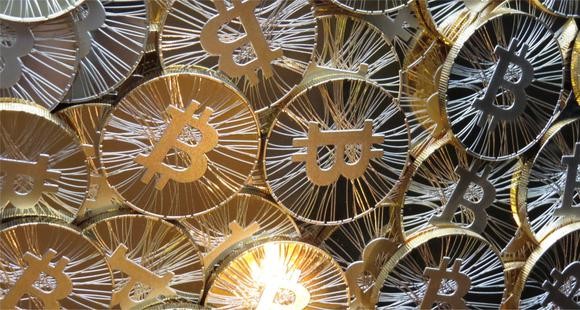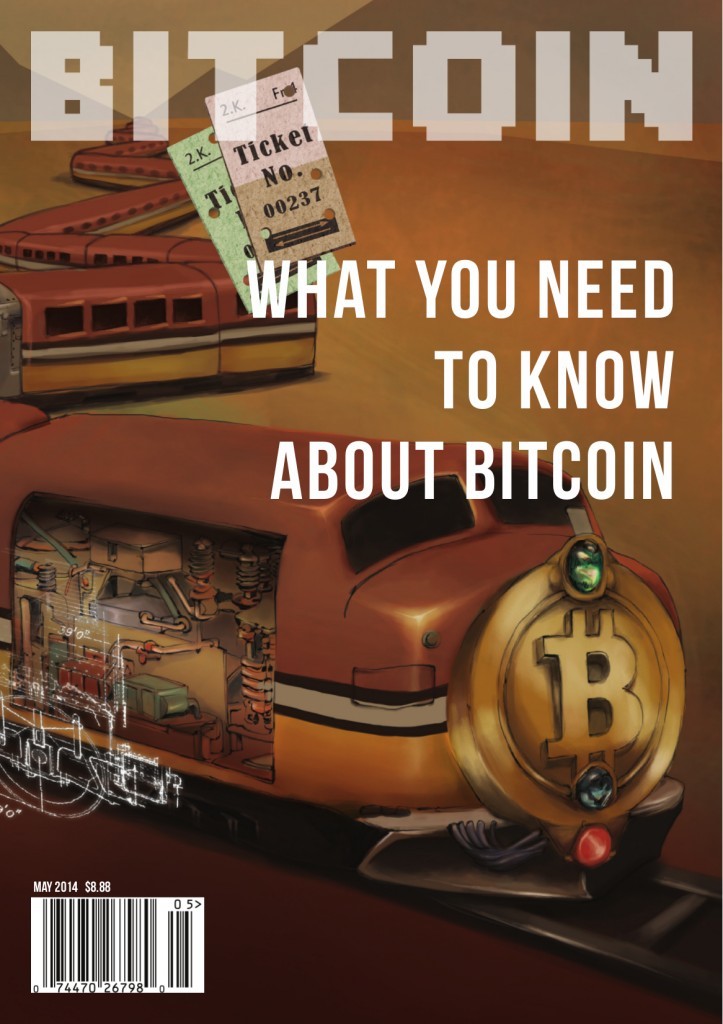Bitcoin basics What you need to know
Post on: 16 Март, 2015 No Comment

ChristinaRexrode
You’ve been hearing a lot about bitcoin. But just what the heck is it? As you jump into MarketWatch’s deep-dive on the digital currency, here are the basics about bitcoin:
What is bitcoin anyway? It’s probably the best-known digital currency. The basic idea is that you can use it to pay for things without a third-party broker, like a bank or government. Think of bitcoin like one big ledger shared by all the users: When you pay for something with bitcoin, or get paid, then your transaction is recorded on the ledger. Computers then compete to confirm the transaction by solving complex math equations, and the winner is rewarded with more bitcoins. The process is known as “mining,” but don’t get too wrapped up in that: Only the computer powerhouses get their bitcoins this way.
What’s the point? The currency has populist roots. It made its debut in relative obscurity at the start of 2009, when the financial crisis was still raging. The idea was to take power out of the hands of the central bankers and governments who usually control the flow of currency.
What is bitcoin and what does its future hold?
Bitcoin is both a digital currency and a payment system. To understand the potential of Bitcoin as an investment, you need to know the strengths and weaknesses of each component. At a recent MarketWatch event, experts discussed Bitcoins structure.
Who made it? The bitcoin protocol and reference software was purportedly created by a person or group of people known as Satoshi Nakamoto. But as for who that is, well, that’s up for debate. Newsweek set off a crypto-storm when it said the creator was a 64-year-old electrical engineer from an Los Angeles suburb named Dorian Satoshi Nakamoto, but Nakamoto denied the report and said he barely knows what bitcoin is.
How does it work? You’ll have to install a “bitcoin wallet” app on your phone or computer, then buy them from a bitcoin exchange.
Where can I use it? Oh, there are a few places, though there doesn’t seem to be much rhyme or reason to the list. Use bitcoin to watch the Sacramento Kings or to get a date on OkCupid. Overstock.com OSTK, +2.03% (whose CEO says money is too important to leave in the hands of government officials) and “Farmville”-home Zynga ZNGA, +2.68% are testing the bitcoin waters too. The Winklevoss twins used the digital currency to buy tickets for some future ride on Richard Branson’s rocket ship, and a car dealership in Southern California says a customer bought a Tesla Model S ride with a (virtual) stack of bitcoins.
What’s so great about it? Ask supporters and they’ll tell you that it’s a great deal for small businesses. Stores have to pay a fee to the card industry whenever a customer swipes a credit or debit card to cover the cost of processing that transaction. But those fees would shrink when customers shop via bitcoin, since the transactions are being processed not by Big Finance but by some competing computers.
Another idea is that bitcoin could be used by people in developing countries, who might have cellphones but not bank accounts. Or, as panelist Barry Silbert, founder and CEO of SecondMarket and founder of Bitcoin Investment Trust, said at a MarketWatch Investing Insights panel event recently in New York, people in countries where the official currency is plunging might view bitcoin as a haven (though it’s not like bitcoin isn’t subject to plunging too).

Also, bitcoin payments can be anonymous to some extent, which could be a selling point to people who are concerned about privacy or taxation issues.
What’s not great? The bitcoin exchanges are vulnerable to hacking. Just look at Mt. Gox. which collapsed after it managed to lose some 650,000 bitcoins, or Vircurex. which halted withdrawals after a run on the bank, so to speak. And if something like that happens, good luck getting your money back: This isn’t like an FDIC-insured bank account. The Financial Industry Regulatory Authority, or Finra, issued a warning recently that digital currencies are “more than a bit risky .”
The anonymity isn’t a selling point for everyone. As panelist Mark T. Williams, a banking and risk management expert and a professor at the Boston University School of Management, said during the panel discussion: “If a criminal actually grabs it and gets the coin, they own the coin and there’s no way to pull it back.” Relatively unregulated, bitcoin could potentially be at the heart of illegal activities, including tax evasion or money laundering.
It’s also volatile as heck, which, come to think of it, seems like a given when you’ve got a currency that isn’t controlled by any central bank. Bitcoin was recently trading around $448, according to the bitcoin price index by CoinDesk. A few months ago, it was more than $1,000. A year ago, it was barely pushing $100. Two years ago, it was about $5.
What’s next? No one really knows how to regulate bitcoin, or who should do it, and, as the MarketWatch panelists point out, regulating a rogue currency too heavily would make bitcoin not really bitcoin any more. There’s a cacophony of opinions: The Treasury is worried that it will be used for illegal activities. Federal Reserve Chairwoman Janet Yellen says the Fed has no authority to regulate it. The IRS has defined bitcoin as property, and not a currency .
Read these related stories:














